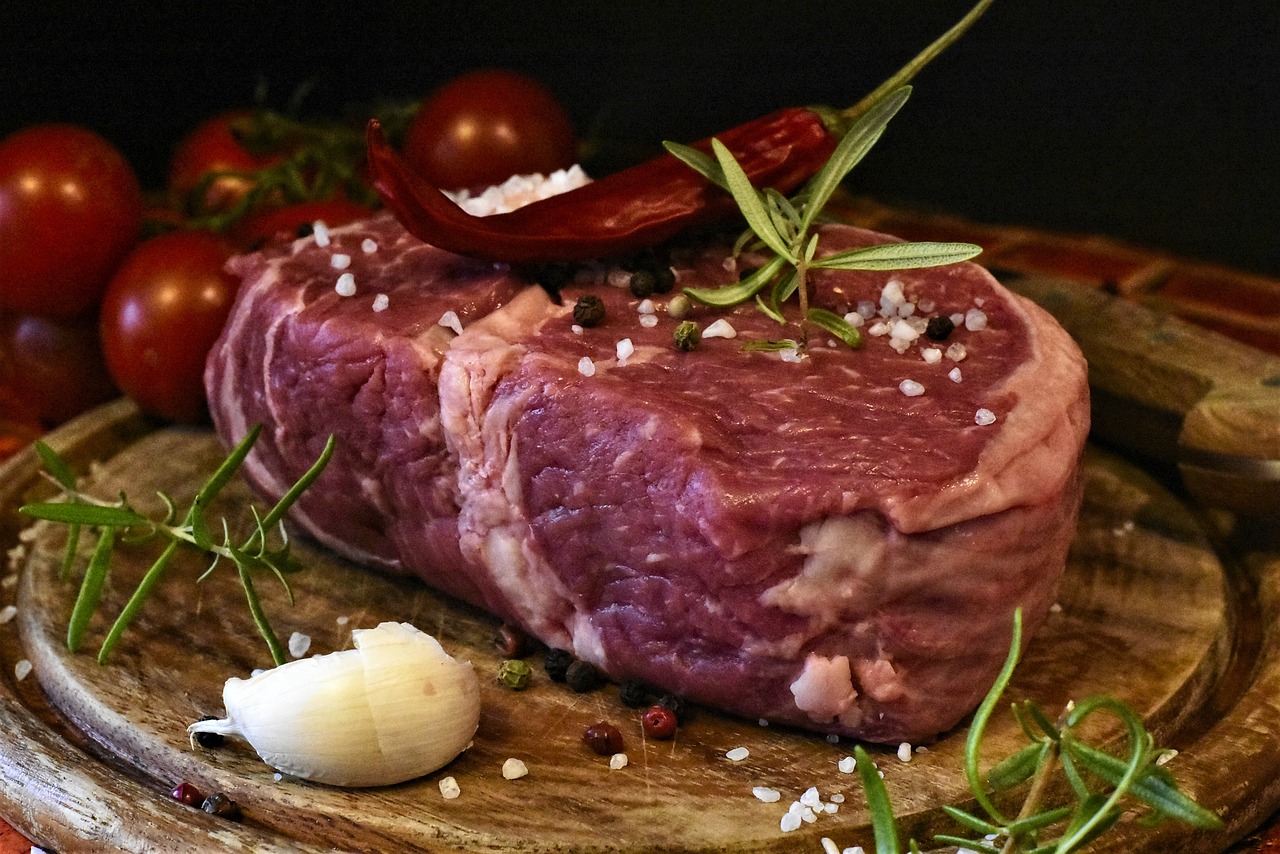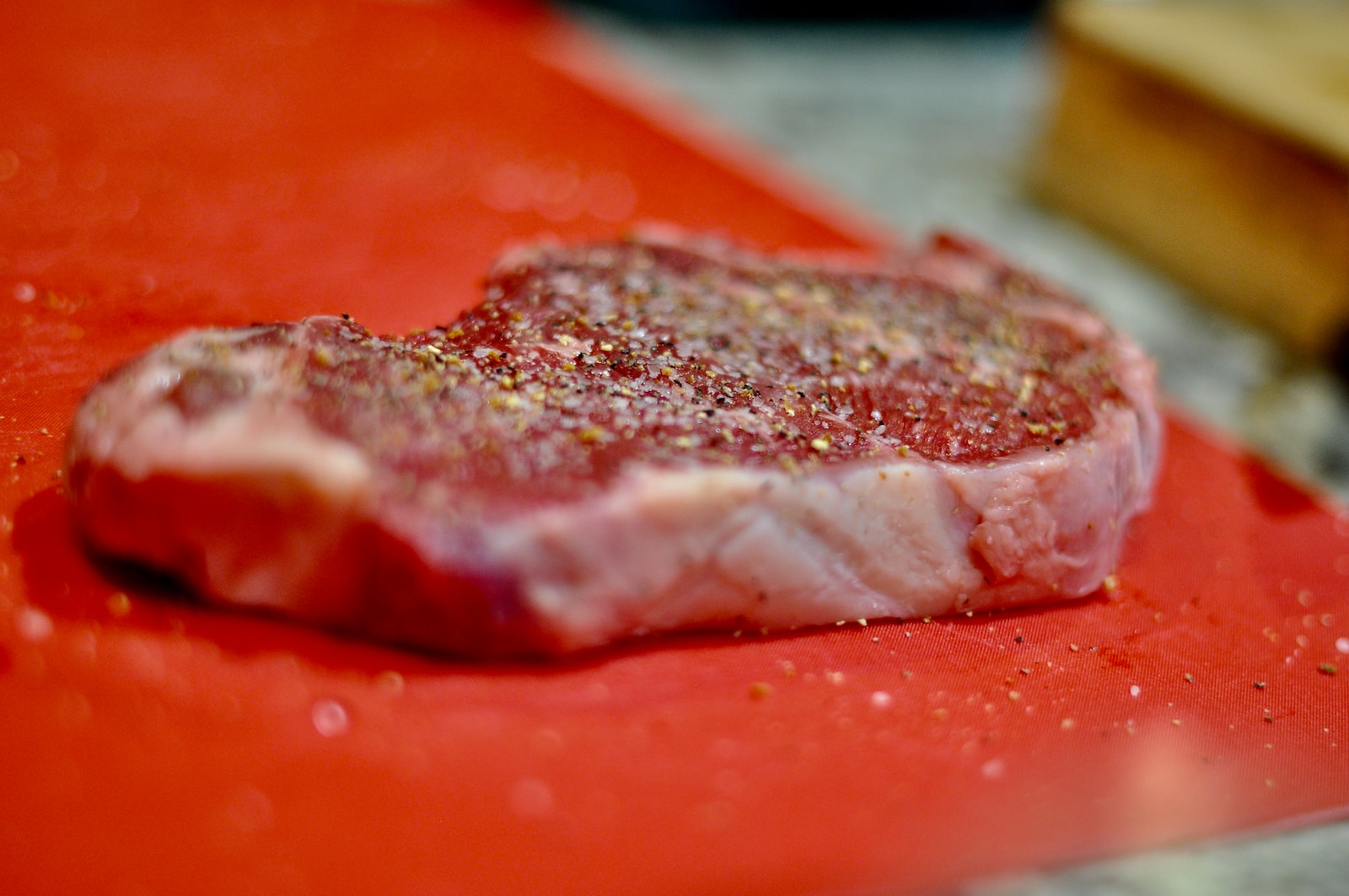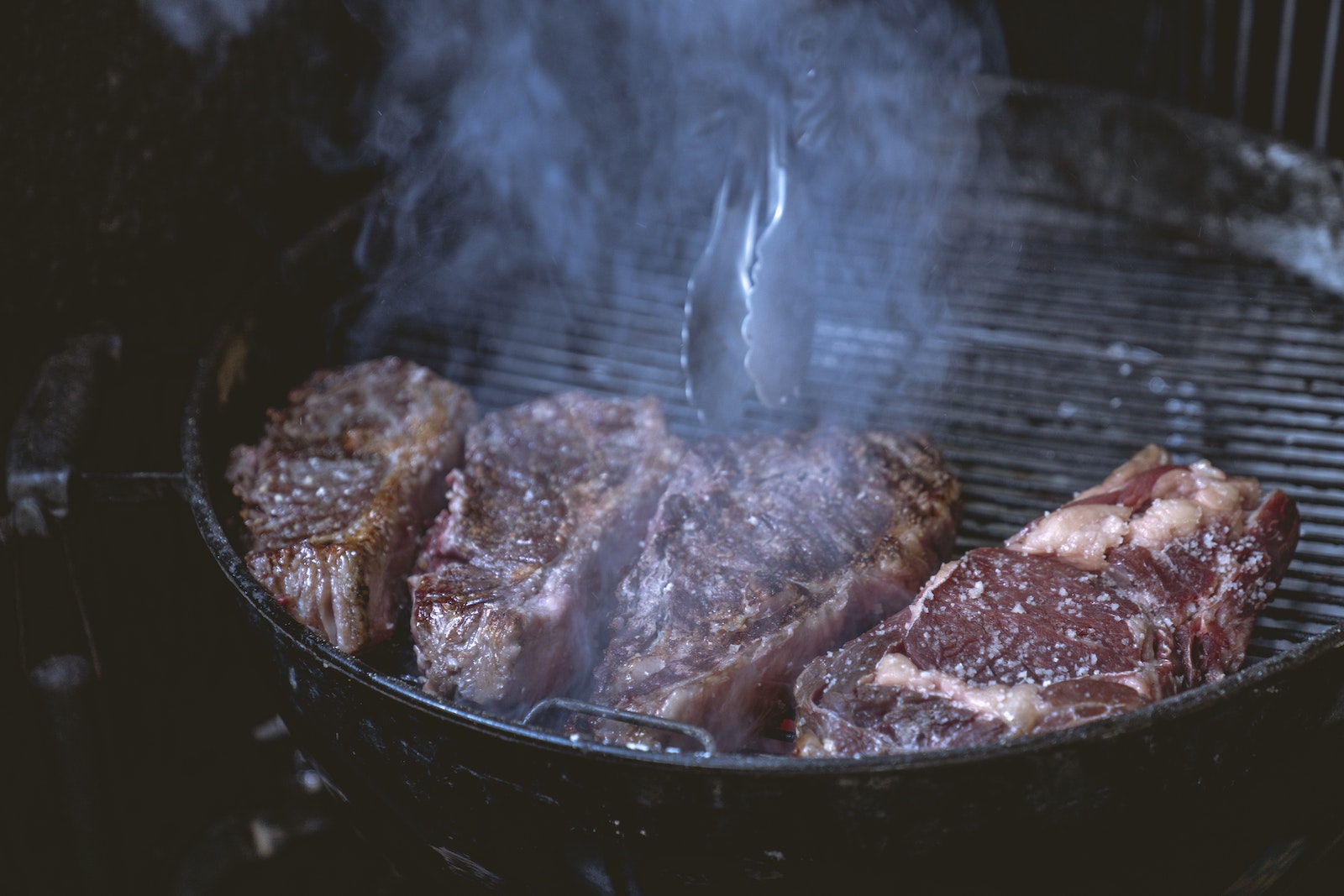Summary. The carnivore diet, which involves completely eliminating plants from one’s diet and consuming only animal-sourced foods, is increasingly popular. While this approach does provide health benefits for some individuals, it can also create nutritional deficiencies and other issues. The pros of this diet include improved energy levels, fat loss, and reduced inflammation. On the other hand, potential cons include a higher risk of nutrient deficiencies, and an increased environmental impact due to the production, transportation, and waste associated with high levels of animal consumption. Ultimately, the carnivore diet can be a healthy, beneficial choice for some individuals, but it’s important to weigh the pros and cons before making dietary changes.
Are you looking for an efficient way to improve your diet and health? The carnivore diet could be a great option for you to consider. It has become increasingly popular, thanks to its promise of reducing inflammation and aiding in weight loss. But what are the pros and cons of the carnivore diet? Can it really deliver on these promises and what are some of the potential risks associated with it? In this article, we will explore the pros and cons of the carnivore diet to help you make an informed decision about your dietary needs.
It eliminates all plant-based foods such as fruits, vegetables, grains, and legumes. Proponents of this diet believe that this approach is more natural and more closely aligned with the eating habits of ancient humans. So, what are the potential benefits and risks of this diet? Are there any long-term effects that you should consider? Let’s explore the pros and cons of the carnivore diet so you can make an informed choice.
This is because animal-based foods tend to be higher in protein, which can help to keep you fuller for longer. They are also naturally low in carbohydrates, meaning that your blood sugar levels stay more stable. Additionally, the higher levels of omega-3 fatty acids in animal products can help to reduce inflammation, which can help to reduce body fat.
On the other hand, there are potential risks associated with the carnivore diet. Due to its high-fat content, this diet may increase your risk for stroke and diabetes if not done with moderation. Additionally, the elimination of plant-based foods means that you are missing out on important vitamins and minerals, including dietary fiber, which is essential for digestion.
?Pros of the Carnivore Diet May Help with Weight Loss: Eating mostly meat and animal products could lead to fewer calories and less fat, leading to potential weight loss. Low in Carbs: A carnivore diet is one of the most carb-restrictive plans available.
Eliminating all plant-based foods allows you to drastically reduce your intake of carbohydrates. Improved Digestive Health: Eating primarily animal-based products could help reduce inflammation in your gut, potentially improving your digestive health.
Improved Mental Clarity: Since a carnivore diet is low in carbs, it mimics the effects of a low-carb diet or even a ketogenic diet. This could lead to improved mental clarity, as well as other potential benefits associated with these diets. Improved Nutrient Density:
Eating animal-based products provides high-quality protein and fat, along with other beneficial micronutrients, such as essential vitamins and minerals. Cons of the Carnivore Diet High in Fat: Eating a lot of animal-based products can significantly increase your fat intake, which may not be beneficial if you’re trying to lose weight.
Possible Nutrient Deficiencies: Eliminating almost all plant-based foods can significantly reduce your intake of dietary fiber, vitamins, and minerals, potentially leading to deficiencies. Not Sustainable for Some: Since the carnivore diet reduces food variety, many people may find it difficult to follow it for a long period of time. Potential Health Risks: Eating primarily animal products could increase your risk of certain health problems, such as heart disease, due to a high saturated fat intake.
Overview of the Carnivore Diet
The Carnivore Diet is a fairly new way of eating, and one that is becoming increasingly popular. It is based on eating only animal products, such as beef, pork, poultry, fish, eggs, and to a lesser extent, dairy. It is essentially an all-meat diet, and one that has gained traction due to its simplicity and some of its potential health benefits.
However, like all dietary decisions, there are both pros and cons to consider. The biggest advantage to the Carnivore Diet is its simplicity. All food is animal-based, so there is no need to worry about combining foods or separate food groups. Also, eating only animal products simplifies meal planning, grocery shopping, and food prep.
The Carnivore Diet can also provide a number of health benefits. Because it is a very low-carb diet, it can be beneficial for those looking to lose weight and improve their blood sugar control. Additionally, many of the animal products, such as organ meats, are rich in iron and other minerals that can help boost immunity and provide energy.
It can also be beneficial for those who suffer from digestive issues, as animal-based foods are often easier to digest. However, there are also some negatives to consider. One of the biggest drawbacks is the lack of fiber.Additionally, eating a lot of animal products can be expensive, and may not always be available. Lastly, while the diet may be beneficial for some, it is not suitable for everyone, and a person should always consult a healthcare provider before changing their diet.
Overall, the Carnivore Diet is a simple and compelling option for those looking to make dietary changes. While there are pros and cons to consider, it is important to recognize that every individual’s needs will be different. Ultimately, deciding which diet works best for you should be a decision made with the help of your healthcare provider.
Health Benefits Associated with the Carnivore Diet
The carnivore diet is gaining lots of attention lately, as more and more people are interested in its potential health benefits. While there is still limited research on the long-term effects of this extreme dietary approach, there are some promising findings that suggest it could be beneficial.
For starters, research suggests that following a carnivore-type diet can help you achieve dietary ketosis, a metabolic state that helps you more efficiently burn fat for energy. This improved fat-burning can result in weight loss, improved cholesterol levels, decreased inflammation, and better overall health. The carnivore diet is very low in carbohydrates, and research suggests that a low-carb diet can help reduce your risk of developing type 2 diabetes and can even help improve insulin sensitivity.
Following a carnivore diet can also help reduce inflammation. Inflammation contributes to a wide range of health conditions, from depression to cancer. The anti-inflammatory effects of the diet are largely due to its high fat content and the presence of omega-3 fatty acids, which help reduce inflammation. Finally, the carnivore diet is high in protein, which can help build and maintain muscle mass.
This, in turn, can help you consume fewer calories and further aid in weight loss. Ultimately, the carnivore diet can offer several health benefits, such as improved fat-burning, diabetes management, reduced inflammation, and more. Of course, like any diet, there are pros and cons to consider, such as potential nutrient deficiencies due to its restrictive nature. It’s important to discuss the diet with your doctor to determine if it would be a good option given your health history and lifestyle.
Pros of the Carnivore Diet


The carnivore diet has been gaining a lot of attention lately due to its purported health benefits. With this diet, followers eat only animal-based products, such as meat, dairy, and eggs. While there are certainly pros to following this type of diet, there are also cons that should be considered before making the switch. One of the greatest advantages of the carnivore diet is that it is very simple. It eliminates all processed and refined foods, which means that you get to focus on eating nutrient-dense clean meats, fish, eggs, and dairy.
This style of eating is also believed to provide numerous health benefits. Many find that it helps to support healthy weight loss, increases energy levels, and improves digestion. In addition, some people feel that it is an optimized diet for their body’s unique needs and makes them feel more alert and energized. However, there are some drawbacks to the carnivore diet.
Additionally, it can lack important nutrients that come from vegetables and fruits. Vitamin C, for example, is found mainly in plant foods, and so an individual following this diet would need to supplement to meet their daily needs.
Overall, the carnivore diet can be a great option for some people, as it offers some potential health benefits and is surprisingly simple to follow. But it is important to consider the pros and cons of the diet before making a drastic switch, and talk to a healthcare provider if necessary.
Rapid Weight Loss



Rapid weight loss is a goal for many people, but it can come with some risks if it is not done safely and responsibly. One of the more extreme diets out there to achieve rapid weight loss is the carnivore diet. On this diet, you essentially eat nothing but animal proteins and fats. While this may bring about some weight loss results, there are pros and cons to consider before taking on such a restrictive diet. The first pro is that a person can usually incorporate the diet relatively quickly and easily. You don’t need to track what you are eating or count calories.
The simplicity of the diet could be appealing to some, as it can help to reduce stress around meal planning and prep. Another pro is that this diet is usually ketogenic, which means that the body uses fat for energy. This comes with the potential of increased energy, mental clarity, improved sleep, less bloat and other benefits. On the other hand, there are some cons to consider with the carnivore diet. One is that while the diet may be effective for short-term weight loss, it is not likely to be sustainable in the long run.
Another con is that it may be hard to find foods that abide by the diet’s restrictions when eating out, making it difficult to go to social events or other occasions that may involve food. Also, as with any restriction, it can increase the risk of disordered eating habits and it can be hard to keep the diet going if there is not a clear reason for doing it.
Overall, the carnivore diet can be a very restrictive way of eating, and if it is not done safely, it can lead to health issues in the long term. Therefore, it’s important to consult a doctor before embarking on such a strict diet.
Improved Digestive Health



The carnivore diet has been gaining popularity in recent years as a way to improve digestive health and lose weight. But, while some believe it offers numerous benefits, there are also some potential drawbacks to consider. To truly understand if this diet is right for you, it’s important to weigh the pros and cons.
The biggest potential benefit of the carnivore diet is that it focuses largely on high quality, nutrient-dense animal proteins such as meats, fish, eggs, and dairy. This type of diet can potentially reduce inflammation in the body, improve digestion, and reduce the risk of digestive issues such heartburn, irritable bowel syndrome, and acid reflux. Eating these proteins can provide your body with essential amino acids, vitamins, and minerals.
The carnivore diet may also support weight loss. As you are avoiding processed foods and sugary drinks, your calorie intake might naturally decrease. You may even find that you are more satiated as these proteins and fats help to keep you full for longer.
On the other hand, it’s important to be aware of some of the potential drawbacks of the carnivore diet. As this is a restrictive dietary pattern, it has the potential to lead to deficiencies in certain micronutrients such as fiber, vitamins B6 and B12, and minerals, such as magnesium and potassium, if not closely monitored.
It’s also important to consider the impact of this diet on the environment. Raising animals for their meat, eggs, and dairy is a major consumer of resources and energy. If you are concerned about the environment, you may want to consider a more plant-based diet as the most sustainable option.
Ultimately, the decision to follow a carnivore diet should be based on your individual needs and health goals. If you’re looking for a way to improve your digestive health and lose weight, it may be worth giving this diet a try, as long as you’re aware of the potential risks and take steps to monitor your nutrient intake.
Reduced Inflammation


The carnivore diet is a relatively new dietary approach, but it’s one that’s gaining traction among health enthusiasts and those looking to lose weight. Basically, the carnivore diet involves eating only foods that come from animals, such as meat, fish, eggs, and some dairy products.
Proponents of the diet argue that it is more natural to eat this way and that this type of diet reduces inflammation in the body. But is this really true? There are many pros and cons of the carnivore diet. The main pro is that it is a very anti-inflammatory diet.
Additionally, it is also posited that eating only animal products can reduce overall food cravings and help lead to better weight loss results. Plus, the carnivore diet gives people the opportunity to eat nutrient-dense animal foods, which are filled with vitamins, minerals, and essential amino acids. On the other hand, there are some cons to the carnivore diet.
First and foremost, it’s important to note that most doctors and health experts do not recommend this type of eating. The diet can lead to nutrient deficiencies because it does not allow for the consumption of fruits, vegetables, and other plant-based foods which are known for their high nutrient content and fiber.
Additionally, the carnivore diet could lead to high levels of cholesterol and saturated fat, which can put people’s health at risk. Overall, the carnivore diet can offer some health benefits, such as reducing inflammation and aiding in weight loss. But it’s important to be aware of potential risks and nutrient deficiencies that could arise from this extreme type of eating. Speak to your healthcare provider if you’d like to learn more or are considering trying out the carnivore diet.
Increased Mental Clarity


. The carnivore diet has become extremely popular in recent years, due to its claimed benefits of increased mental clarity and improved health. Eating a diet consisting exclusively of animal products eliminates all the potential allergens and plant toxins that might have been triggering inflammation and other issues. For some people, this may be enough to improve their cognition and their overall health. But it’s not all sunshine and roses: there are potential cons to the carnivore diet as well.
By eliminating all plant-based and grain-based foods from the diet, you’re also eliminating a lot of potential nutrients that your body needs to stay healthy. This could lead to deficiencies in some vitamins and minerals, which could have serious implications for your health. Another potential downside of the carnivore diet is that it is low in fiber. Fiber is an essential part of our diet, as it helps to regulate digestion and blood sugar levels.
For this reason, many people who follow the carnivore diet also supplement with fiber to ensure they are getting enough. Finally, the carnivore diet does not provide much room for individual variation, as there are only so many types of animal products that can be eaten. This means that it may be difficult to cater to dietary restrictions, personal needs, or preferences. Ultimately, the pros and cons of the carnivore diet depend on the individual. If you think it could be right for you, be sure to talk to a healthcare professional first to ensure that it’s the right choice.
Improved Physical Performance


The carnivore diet has been gaining popularity as a way to improve physical performance and overall health. Advocates claim that it can help you lose weight and improve your metabolism while providing essential nutrients and allowing for higher energy levels. But, as with any way of eating, it has pros and cons that you should consider before committing to the carnivore lifestyle.
On the plus side, some athletes have found that the diet improves physical performance. By limiting yourself to animal proteins and fats, your body gets a steady supply of amino acids to build muscle, as well as the extra energy needed for intense workouts. You may also find that you have fewer cravings for unhealthy foods, as the diet eliminates sugar, processed grains, and vegetable oils.
Eating only meat and dairy products helps reduce inflammation-causing foods like dairy, grains, and legumes, which can improve joint pain and digestion. Plus, limiting your diet to animal products means you get an all-natural source of protein that is higher in quality than most vegetarian sources. The cons of the carnivore diet, though, are worth taking into account. While you’ll get ample amounts of protein, your diet becomes quite restrictive as you cut out grains and most fruits and vegetables. That means you’ll be missing out on key vitamins and minerals.
Plus, eating too much animal protein can increase your risk for heart disease, stroke, and certain types of cancer. Finally, if you’re a vegetarian or vegan, the carnivore diet won’t be right for you. Not only could it be difficult to adhere to so many restrictions, but you’ll essentially be going against your personal beliefs and lifestyle.
Ultimately, it’s important to weigh the pros and cons of the carnivore diet before deciding if it’s right for you. If you decide to try it, be sure to consult a qualified nutritionist or physician for advice to ensure you get the nutrition you need.
Cons of the Carnivore Diet


The carnivore diet has been gaining popularity in recent years as a way to improve health. But there are also some potential downsides to this type of diet, and it’s important to take a look at these before deciding if this is the right diet for you.
One issue with the carnivore diet is that your body needs a variety of nutrients to thrive, and these are not found in animal products alone. This means that you would need to include plant-based foods like fruits, vegetables, legumes, and grains in your diet in order to get enough protein, carbs, essential vitamins, and minerals like magnesium and iron. If you are not careful with your choices, you could end up not getting enough of these important nutrients.
This can make it hard to get variety in your diet, which is necessary for optimal nutrition. Eating the same foods day after day may also lead to boredom or feelings of deprivation. High levels of animal fats have also been linked to some health risks. These include an increased risk of developing heart disease and certain types of cancer.
Finally, it can be difficult to get adequate fiber on the carnivore diet. Fiber is important for your digestive health since it helps to speed up the elimination of waste. It can also help to improve your cholesterol levels and regulate blood sugar levels. Unless you are very careful with your food choices, you may not be getting enough of this important nutrient. For these reasons, before committing to the carnivore diet it’s important to do your research and talk to your doctor about whether it is the right choice for you.
Nutrient Deficiencies


The carnivore diet is becoming increasingly popular as an alternative way of eating. It consists of eating only animal products such as meat, fish, eggs, and dairy products. Proponents of the carnivore diet claim that it can provide many health benefits including weight loss, improved mental clarity, increased energy, less bloating, and improved digestion. But before you jump on this new diet bandwagon, it’s important to consider the pros and cons of this type of eating. The main pro of the carnivore diet is that it eliminates carbohydrates from the diet. This makes it easier to control your blood sugar and insulin levels, which can be beneficial for people with type 2 diabetes and weight loss.
One downside to the carnivore diet is its lack of variety. With just animal products as your source of nutrition, you may not be getting the daily nutrients you need, such as calcium, vitamin D, iron, and fiber. This can lead to nutrient deficiencies that can cause health problems down the road. Additionally, the carnivore diet can be more expensive than other diets since it relies heavily on animal products and can easily become unbalanced without adding in the proper supplements to make up for the nutrient deficiencies. Another con to the carnivore diet is that it can be difficult to follow for long periods of time.
Additionally, this type of diet can be hard on the digestive system if not done carefully since it eliminates a lot of the beneficial bacteria and fiber found in other diets. The pros and cons of the carnivore diet should be carefully weighed before starting it.
It should only be considered if you are aware of the health risks and have realistic expectations of what it can do for you. With that being said, it can be a great way to achieve your health and weight goals when done properly and safely. Just be sure to consult your doctor first and ensure that you are getting all the essential nutrients your body needs.
Overindulging and Binge Eating
The carnivore diet is a growing trend among health-conscious individuals looking for a more sustainable and holistic approach to health and wellness. Proponents of the carnivore diet claim that it can offer numerous health benefits and an improved quality of life. But it’s important to remember that this is a strict all-meat diet, meaning that it comes with risks and potential drawbacks as well. One of the main pros of following the carnivore diet is that it has been theorized to offer significant health benefits to those looking to improve their overall health.
Additionally, it can provide you with a high level of protein, essential fatty acids, and other important vitamins and minerals. On the other hand, there are a few potential cons to taking a carnivore approach to nutrition. One of the main issues is that it can be incredibly difficult to stick to.
Additionally, because it’s an all-meat diet, it can be hard to get the necessary vitamins and minerals from food to ensure adequate nutrition. Finally, it’s important to remember that the carnivore diet is an elimination diet, meaning that certain nutrient-rich vegetables, fruits, nuts, and seeds are off-limits, which can make it difficult to get all the vitamins and minerals you need.
Overall, while the carnivore diet can offer potential health benefits, it is important to understand all the potential risks and drawbacks of following such a rigorous diet. Therefore, it’s important to consult a healthcare professional before considering this dietary approach.
Difficulty Adopting Long-Term


When it comes to dieting, there are a lot of different options out there and it can be difficult to pick the right one for you. The carnivore diet, for example, is a popular choice among many who are looking for an easy way to change their lifestyle and reach their health and fitness goals. So, what are the pros and cons of the carnivore diet? The main benefit of the carnivore diet is that, since you are only eating meat, it is an incredibly simple and straightforward way to eat.
Additionally, since most processed and processed-containing foods are eliminated, the diet is incredibly healthy for your body from a cellular level. Furthermore, you don’t need to measure portion sizes, since the meat that you’re eating only has so many calories. The biggest downside of the carnivore diet is that it is very difficult for some people to adopt long-term.
While meat has a lot of beneficial vitamins and minerals, it can be difficult to achieve full nutrition without the inclusion of plant-based foods. Additionally, this type of diet can be more expensive than plant-based diets, as meat is more expensive than plants. Overall, the carnivore diet is an incredibly simple and straightforward way to change your nutritional habits, but it is a lifestyle that may require some adaptation, both in terms of nutrition and lifestyle. In the long-run, it can be a healthy and sustainable diet, but be sure to assess the pros and cons of the diet before you commit to it.
Potential Negative Impacts on Overall Health
The carnivore diet is a type of diet that has started to gain a lot of attention recently, as more and more people look to the extreme of this plan for potential health benefits. It involves eating solely animal-sourced foods such as meat, poultry, fish, and eggs, and excludes all plant-based foods. This way of eating is touted to be a great way to increase energy levels, improve digestive health, and even reduce inflammation. However, before you dive into this diet, it’s important to be aware of the potential negatives associated with it.
Eating a diet that consists only of animal products limits your access to dietary fiber as well as essential vitamins and minerals that are found in plant-based foods. This may increase the risk of nutrient deficiencies, as well as more extreme health problems such as autoimmune conditions, heart disease, and other chronic diseases. Additionally, eating a diet that consists only of animal-sourced food can be unsustainable in the long term and could lead to a higher risk of overeating. Another potential negative impact of the carnivore diet is its lack of variety.
Furthermore, it can be difficult to find affordable and sustainable sources of these animal-sourced foods. Lastly, this type of diet is usually high in saturated fats, which can increase the risk of heart disease and other serious illnesses.
Overall, the carnivore diet can be a great way to jumpstart your health, but it’s important to be aware of the potential negative impacts. It’s important to remember that this diet is not for everyone, and that there are other, more balanced and sustainable options to achieve your health goals. It’s important to consult with a dietitian or doctor before embarking on this type of diet.
Alternatives to the Carnivore Diet


If you have been considering switching to a carnivore diet, you likely have some questions about its pros and cons. After all, this type of restrictive diet can have both positive and negative impacts on your health. Here is a closer look at some of the pros and cons of the carnivore diet so you can decide if it is right for you.
One of the main advantages of the carnivore diet is that it can be effective for weight loss. By eliminating all plant-based foods, you are automatically cutting out a variety of high-calorie but nutrient- poor foods that can lead to weight gain. Additionally, following a diet that is high in protein and healthy fats can make you feel more full and therefore more likely to eat less.
Specifically, plant-based foods provide essential vitamins, minerals, antioxidants and fiber which are important for overall health. Additionally, this type of diet is very restrictive and can be difficult to stick to for an extended period of time. If you are considering following the carnivore diet, it might be wise to consult with your doctor or a dietitian beforehand. Additionally, there are a few alternatives to the carnivore diet that may fit your lifestyle better. For example, the Mediterranean diet is a great option for heart health, and it focuses on including a variety of plant-based foods and healthy fats.
Finally, the pescatarian diet is also a good alternative as it allows you to include fish in your diet. Whichever diet you decide to follow, it is important to make sure that it is balanced and nutrient-dense. If you follow the carnivore diet, make sure to supplement with essential vitamins and minerals. Ultimately, the pros and cons of the carnivore diet should be taken into careful consideration when deciding if it is right for you.
The Paleo Diet
The Paleo diet, otherwise known as the “caveman diet,” has become increasingly popular due to the many benefits it can offer those looking for a healthier lifestyle. The idea behind the Paleo diet is to consume only foods that would have been available to our Stone Age ancestors such as vegetables, fruit, nuts, and lean protein.
This style of eating is said to reduce inflammation, reduce the risk of diseases, and in some cases, even help with weight loss. But as with any dietary choice, there are both pros and cons to consider before taking the plunge. One of the biggest benefits of the Paleo diet is its focus on whole, natural foods.
It has also been linked to a decrease in inflammation – a factor known to contribute to heart disease and other chronic illnesses. The lack of processed food on the Paleo diet is also beneficial, as it eliminates unhealthy additives and preservatives that can be found in many store-bought items. Furthermore, the Paleo diet has been linked to improved metabolic markers, making it an attractive choice for those who are overweight or looking to improve their overall health. Of course, the Paleo diet isn’t without its drawbacks. For one, it can be very restrictive.
Additionally, it can be challenging to maintain the diet during times of socializing or travel. Finally, the diet can be expensive due to its reliance on fresh, natural ingredients. Ultimately, whether or not the Paleo diet is right for you will depend on your individual goals and lifestyle.
It can be beneficial for those looking to improve their overall health, but it may not be feasible for those with limited access to fresh, natural foods. Before switching to the Paleo diet, speak with a healthcare professional to determine if it’s the right choice for you.
The Ketogenic Diet
etc. The carnivore diet is an extreme dietary protocol that consists of only animal foods, such as meat, fish, eggs, and dairy. It eliminates plant foods like fruits, vegetables, legumes, grains, and nuts from one’s diet. Proponents of this diet claim that it helps with weight loss, increased energy, better digestion, mental clarity, and improved overall health. However, there are also a number of potential risks associated with it that one should be aware of before embarking on this diet.
There are no complicated rules or calorie counting involved; just eating animal foods and that’s it. It also eliminates many of the potential sources of inflammation that can occur from eating too many processed foods. Additionally, people who follow a carnivore diet often experience a boost in energy, as well as an improved mental focus. On the other hand, it’s important to be aware of the potential negative consequences of this diet before diving head-first into it.
Additionally, it eliminates many of the vitamins and minerals found in plant-based foods, so it’s important to supplement with a multivitamin to avoid potential nutrient deficiencies. People with pre-existing medical conditions such as diabetes or kidney disease are also advised to speak to their doctor before starting this diet, as it can cause an increase in saturated fat and cholesterol, which can negatively affect these conditions.
The carnivore diet is an extreme diet that can potentially have both positive and negative health benefits. It’s important to recognize the potential pros and cons before starting it so that you can make an informed decision.
The Mediterranean Diet


The Mediterranean diet is an eating pattern that has been embraced by Mediterranean countries for centuries. It is a healthy diet that includes primarily plant-based foods such as fruits, vegetables, nuts, grains, legumes, and olive oil. It also includes some dairy products, fish, and poultry, but only in moderation and with lean meats.
While this diet is rich in whole foods, it excludes or severely restricts highly processed foods. One of the key principles of the Mediterranean diet is to eat in moderation, and it also encourages limiting refined carbohydrates and sugary desserts. There are a number of potential benefits associated with the Mediterranean diet.
Research has also found that it can reduce the risk of type 2 diabetes, as well as cancer and Alzheimer’s disease. It’s also been associated with healthy weight loss—obtaining essential nutrients from plant-based sources rather than processed foods can reduce calorie consumption, aiding in weight loss. Additionally, the Mediterranean diet encourages social interaction; meals are often shared with friends and family and eaten with pleasure, adding an extra layer of health benefits.
However, there are some potential drawbacks to consider when it comes to the Mediterranean diet. It can be expensive, as some ingredients in the diet, such as olive oil and fresh fruits and vegetables, can be pricier than more processed options.Additionally, the Mediterranean diet is based on traditions in countries that have access to fresh produce and other whole foods that may not be available everywhere.
All in all, the Mediterranean diet offers many health benefits, from reducing the risk of heart disease and stroke to possibly preventing cancer and Alzheimer’s disease. However, if you decide to take on this diet, it is important to ensure that you have access to the necessary ingredients before taking it on. Additionally, while limiting processed and red meat is important in the diet, making sure that you’re still getting a balanced diet is essential.
The Flexitarian Diet
The flexitarian diet sits somewhere between vegetarianism and full-on carnivore diets. It’s a way of eating that involves eating mostly plant-based foods with a moderate amount of animal-based foods. Proponents believe that this way of eating allows them to get the most nutritional bang for their buck, while still allowing them to enjoy some animal proteins.
But what are the pros and cons of this diet? The biggest advantage of the flexitarian diet is that it relies mainly on whole, unprocessed plant foods. This makes it relatively easy to ensure you’re getting adequate amounts of essential vitamins, minerals, antioxidants, and phytochemicals.
This can help to reduce the risk of some chronic diseases, such as certain types of cancer, and can lead to a healthier, more balanced diet overall. Another advantage of this diet is that it can help you to reduce meat consumption. If you’re trying to reduce your environmental impact, reducing the amount of animal-based food you consume is key.
The flexitarian diet also allows you the flexibility to enjoy some animal proteins when you want to, without having to go all-in on a full-on carnivore diet. On the downside, the flexitarian diet might be hard for some individuals to stay consistent with.
Additionally, although eating mostly plant-based foods can have a lot of health benefits, there is a risk of some nutrient inadequacies, since plant-based foods are not as nutrient-dense as animal proteins. That said, if you’re careful to consume a wide variety of foods, it’s possible to get all the vitamins, minerals and nutrients you need.
All in all, the flexitarian diet can be a lucrative option for people who want to enjoy the healthy lifestyle of a vegetarian, but don’t feel ready to completely give up their favorite animal proteins. When executed correctly with a variety of whole, unprocessed foods, the flexitarian diet can be a great way to get all the essential nutrients your body needs while reducing the risk of chronic disease.
Ways to Incorporate the Carnivore Diet into Your Life


The carnivore diet has gained a lot of attention as a trendy new way of eating and living. It’s all about eating only animal foods – mostly red meat, fish, and eggs, but also some dairy products and even organ meats. On the surface, this may seem easy enough, but there are a lot of factors to consider if you’re thinking of taking on the diet.
It can be quite challenging to make sure you are making the most of the carnivore diet, so let’s take a look at the pros and cons so you can decide if this is something you’d like to try for yourself. One of the most obvious advantages of the carnivore diet is that it is very restrictive, so it can be easier to stick to it than a more general diet plan.
As an added bonus, since animal foods are more nutrient-dense than plant foods, you can get all of the vitamins and minerals you need from the foods you’re eating. However, there are a few potential downsides to the diet that you should consider. First of all, it can be quite expensive, since animal proteins tend to be more expensive than plant proteins. Additionally, it’s important to make sure you’re getting enough seafood and organ meats (like liver and kidneys) in your diet to ensure that you’re getting enough essential fatty acids, vitamins and minerals.
Ultimately, the decision to try the carnivore diet is up to you. But if you do decide to try it, make sure you are getting enough of the vitamins and minerals your body needs and that you are finding ways to make the food enjoyable and interesting. This will allow you to make the most of the diet and stay healthy. Good luck, and happy eating!
Eat Whole Foods


The carnivore diet has become increasingly popular in recent years. It focuses completely on animal-based food and cuts out all plant-based foods, eliminating grains, fruits, and vegetables. As with any restricted diet, it’s important to consider the pros and cons of the carnivore diet before trying it out. One of the main pros of the carnivore diet is that it may help reduce inflammation in the body. Studies have shown that processed foods and certain plant foods, such as grains, can increase inflammation in the body, which can lead to chronic health issues.
Another pro of the carnivore diet is that it may improve digestion, as animal products are generally easier to digest than plant-based foods. This could lead to less digestive discomfort, more regular bowel movements, and better overall health. The cons of the carnivore diet are mainly related to getting enough nutrients, as there is a lack of variety in the foods allowed on this diet. It can be challenging for some to get enough essential vitamins and minerals, like vitamin C and fiber, which are largely found in plant foods.
The carnivore diet is a very restrictive way of eating that removes many important aspects of a healthy diet. Rather than relying on this diet, an optimal approach often includes a balance of both plant-based and animal-based foods. Eating whole foods and limiting processed and refined foods is a great way to support a healthy lifestyle.
Start Slow


When it comes to exploring the pros and cons of the carnivore diet, it is important to start slowly. This type of diet calls for one to solely consume animal products, such as lean meats, eggs, and dairy. Because it can be a dramatic change for many people, it is critical to explore the pros and cons carefully and slowly transition into this way of eating if one chooses to pursue it.
The main advantage of the carnivore diet is that it is extremely low in carbohydrates. Low carb diets have become increasingly popular in recent years and have been shown to have a range of health benefits, including improved blood sugar regulation and blood pressure control.Additionally, consuming only animal products is relatively simple and may offer a form of mental and emotional clarity because of the lack of food choices.
Despite these potential benefits, there are certainly potential drawbacks to the carnivore diet. For one thing, it is important to ensure you are consuming a variety of animal products to get all essential vitamins and minerals. Additionally, due to its high fat content, consuming large amounts of animal products can be taxing on the liver and can even cause high cholesterol in some cases.
Overall, it is important to consider the pros and cons of the carnivore diet carefully before making the switch. For some, it can provide a range of health benefits, but for others, it may be overly restrictive and have a negative impact on their overall wellness. Utilizing a registered dietician to help with transitioning into this type of diet can provide invaluable assistance. Starting slow is critical to find the best way of eating that works for you.
Combine with a Healthy Lifestyle
The carnivore diet has been gaining popularity in the health and wellness community. Consuming meat and animal products while avoiding fruits, vegetables, grains, and dairy is thought to eliminate toxins from the body and create a strong, healthy immune system. But, just like all diets, there are pros and cons to the carnivore diet that must be considered before making a dietary change. The main pro of the carnivore diet is that it eliminates many of the unhealthy foods that can be hard to resist.Additionally, with the carnivore diet, there are no complicated food rules making it a much simpler lifestyle than many of the other diets out there.
On the downside, however, consuming generous amounts of meat can be very hard on your body and contribute to health issues such as high cholesterol and heart disease. In addition, some experts believe that this diet can be lacking in essential nutrients, since it cuts out so many different food groups. Therefore, if you are considering the carnivore diet, it is important to consult your doctor to ensure that it is the right dietary path for you.
For example, vegetarians and vegans may be opposed to consuming animals or animal-based products. Additionally, individuals with allergies to certain meats or ingredients may need to remove or adjust certain aspects of their diets. Although the carnivore diet may not be the right choice for everyone, it could prove beneficial for some individuals by providing an easy and manageable lifestyle that eliminates unhealthy foods. Just be sure to speak with your doctor to ensure that it is the right choice for you and to determine how your diet should be combined with a healthy lifestyle.
Consider Food Quality
Have you heard of the carnivore diet? It’s a way of eating that cuts out most food groups, except for animal proteins and some dairy products like yogurt and cheese. It has grown in popularity recently, with some touting it as a health panacea. While the carnivore diet may present some potential benefits, it’s important to understand the pros and cons before making a choice.
The main selling point behind the carnivore diet is that it eliminates food sensitivity and allergy. This can be a great way to jump-start healthy eating for people with a long history of reacting to certain food items.But the reality is that there’s no scientific evidence to back up any of these claims. When it comes to the pros, there are some legitimate benefits to be had from a carnivore diet.
Since it eliminates most food groups, it can potentially help reduce inflammation, because the body is no longer exposed to the same foods every day. Additionally, the diet eliminates processed ingredients, refined sugars and unhealthy fats, making it easier to stay focused on eating healthy foods. On the other hand, the carnivore diet is extremely restrictive, and it eliminates many healthy food items.
The diet also severely limits your opportunities for variety, which can make it more difficult to stick to in the long run. Moreover, it relies heavily on animal products, which can be expensive and difficult to come by depending on where you live.
In conclusion, while the carnivore diet might have a few potential benefits, it comes with some serious drawbacks. Before deciding to try it, be sure to talk to your doctor or a registered dietitian to make sure it’s the right choice for you. Otherwise, there are plenty of other healthy and balanced eating plans that offer much more variety and a greater number of nutrients.
Wrapping Up
Wrapping up the discussion on the carnivore diet, let’s look at the pros and cons of this approach to eating. Like all diets, the carnivore diet has its own set of advantages and disadvantages. The biggest advantage of the carnivore diet is that it’s really easy to follow. It’s not a complicated plan and there are very few things you need to worry about in terms of counting calories or macronutrients.
All you need to do is focus on eating animal-based foods and you’re mostly good to go. The second big advantage of the carnivore diet is that it’s very high in protein.The third advantage of the carnivore diet is that it’s been linked to improved mental clarity and overall cognitive performance. Some people report that they’re able to think more clearly and focus better after switching to the carnivore diet.
On the other side of the coin, there are some potential disadvantages to the carnivore diet that are worth mentioning. First, it’s important to note that the carnivore diet is very restrictive and not something you want to follow long-term unless you’re prepared to do a lot of research and planning.
Since this diet consists almost exclusively of animal-based foods, you may be missing out on essential nutrients and vitamins found in fruits and vegetables.Since you’re focusing mainly on high quality animal-based foods, the diet can be on the pricey side. Third, the carnivore diet has been linked to higher levels of inflammation. So if you’re already prone to inflammation, this may not be the best diet for you. All in all, whether or not the carnivore diet is right for you is really a personal decision. Weigh the pros and cons and decide what’s best for you.
Recap


The carnivore diet has been gaining traction in the health and wellness community, as people are looking for different ways to improve their health and nutrition. There are many pros and cons to consider when it comes to this diet. The pros of the carnivore diet are that it is a relatively simple way to eat, as it involves only eating animal-based proteins and fats, without any plant-based foods. Additionally, it can be beneficial for those looking to lose weight, as consuming only animal-based proteins and fats can lead to fewer calories and quicker weight loss.
Finally, this diet can reduce inflammation in the body, as plant-based proteins and fats can be pro-inflammatory. The cons of the carnivore diet are that it can be difficult to sustainably source the animal-based proteins and fats needed for this diet. Additionally, since there are no plant-based foods consumed, this can lead to an unbalanced diet, as no sources of fiber or other vitamins and minerals would be consumed.
Ultimately, the pros and cons of the carnivore diet should be considered when thinking about implementing this dietary approach. For those who are looking for a simple way to eat that may lead to quick weight loss, this diet could be beneficial. However, it should be noted that the traditional recommendations for healthy eating that involve nutrient-rich plant-based foods should still be taken into account to ensure a balanced diet that contains all of the necessary macronutrients, vitamins, and minerals for a healthy lifestyle.
Takeaways
The carnivore diet is an increasingly popular dietary option that is based on the idea of eating only animal-based foods, such as beef, fish, eggs, and chicken. Eating this way comes with some unique pros and cons that you should consider before deciding if this is the right way for you to eat.
The biggest benefit to a carnivore diet is that it is simple to follow and easy to stick with. You don’t have to worry about counting calories or measuring portion sizes- all you need to do is eat animal-based foods and you’re good to go.On the other hand, one of the potential downsides of a carnivore diet is that it can be low in variety and micronutrients.
While you may be getting plenty of protein, some essential vitamins and minerals found in fruits and vegetables, such as vitamin C and A, may be missing. Also, by eating mostly animal-based foods, you may find yourself lacking in fiber or other important nutrients that come from plant-based sources.
Additionally, the lack of variety may make it difficult for some to stick with long-term. Overall, the carnivore diet has both pros and cons that you should consider before trying it out. If you find it’s the right fit for you, it could be a simple way to get the nutrition you need in an uncomplicated and easy way. However, make sure you’re also aware of the potential downsides and keep an eye on how you’re feeling and if you’re getting enough of the essential vitamins and minerals you need.
Final Thoughts
The carnivore diet is gaining popularity as an effective way to lose weight and improve health. This type of diet consists of consuming only animal products, primarily meat, fish, and eggs, while eliminating all other foods, including fruits, vegetables, grains, and dairy.
Proponents of the diet claim that it reduces inflammation, increases energy levels, and helps to reduce weight, while some detractors cite health risks associated with an overly restrictive diet. But what are the real pros and cons of the carnivore diet? The main benefit of the carnivore diet is that it offers a fast and effective way to lose weight and improve overall health.
Additionally, many people find that consuming only animal products can help facilitate weight loss, as the ratio of protein to fat can help people feel fuller longer, resulting in fewer calories and overall weight loss. One of the biggest drawbacks of the diet, however, is that it can be difficult to maintain long-term.
Animal products are often more expensive than fruits and vegetables, and it can also be difficult to get enough vitamins and minerals without eating a variety of fruits and vegetables. Additionally, because of the lack of fiber, the carnivore diet can potentially cause constipation and other digestive issues.
In conclusion, the carnivore diet can be an effective way to lose weight and improve overall health, but it can also have its drawbacks. While it can help facilitate weight loss and provide ample amounts of healthy proteins, unsaturated fats, vitamins and minerals, it also eliminates important food groups such as fruits and vegetables, can be expensive, and may be difficult to adhere to long-term. Ultimately, whether or not the diet works for you should depend on your individual circumstances and preferences.
Resources
The carnivore diet has become popular among those looking for a simple and effective way to improve their health and lose weight. For those unfamiliar with the diet, it consists of eating solely animal-based foods such as meat, fish, eggs, and dairy. Proponents of the diet claim it can reduce inflammation, aid in digestion, and boost energy levels.
On the other hand, critics caution against it, arguing that it lacks essential vitamins and minerals, may contribute to an unbalanced gut microbiome, and increases the risk of food poisoning. For those considering making the switch to the carnivore diet, it’s worth considering the potential pros and cons. For starters, the carnivore diet is incredibly convenient. You don’t have to measure servings or worry about ingredient combinations — you just select foods from the animal kingdom and consume them.
One of the most touted benefits of the carnivore diet is its potential to reduce inflammation and improve digestion. Since animal proteins are much easier to digest than plant proteins, many carnivores report improved bowel movements and improved digestion. Animal proteins are also thought to contain anti-inflammatory components that could help reduce inflammation throughout the body.
While there are a few potential benefits to the carnivore diet, there are also some drawbacks to consider. As previously mentioned, many critics argue that the carnivore diet lacks the essential vitamins and minerals present in a balanced diet. Since there are no plant-based foods included, those on the carnivore diet may need to use supplementation to make sure they’re getting enough vitamins and minerals.
On top of this, the carnivore diet may lead to an unbalanced gut microbiome since there’s no fiber. Without fiber, the beneficial bacteria present in the gut has nothing to feed on, which can lead to an overgrowth of harmful bacteria. Furthermore, since many animals are carriers of foodborne pathogens, there’s a risk of increased food poisoning with this diet.
It’s important to note that the carnivore diet isn’t suitable for everyone. Before making any changes to your diet, you should always discuss them with your doctor or other medical professional. Different people may respond differently to this type of eating pattern, so it’s important to make sure it’s the right thing for you.
Research Studies
The carnivore diet has become increasingly popular in the past years, and it is gaining more attention in the scientific and health community. The carnivore diet bases its diet solely on animal products such as meat, fish, and eggs. Because this restrictive diet eliminates all plant-based foods, the carnivore diet can be controversial. There has been research to indicated that there may be some potential benefits associated with this type of diet, but there are also some potential drawbacks that should also be considered.
The primary benefit of the carnivore diet is that it helps to reduce inflammation within the body. Because animal products are naturally anti-inflammatory, eliminating plant-based foods may help to reduce the production of inflammatory markers throughout the body.It is also important to note that eliminating plant-based foods may have a significant effect on the number of free radicals that enter the body.
The elimination of plant-based foods can help to reduce the amount of free radicals entering the body, which has been found to be beneficial for overall health and longevity. Despite the potential benefit of the carnivore diet, there are potential drawbacks that should also be considered. One of the primary drawbacks is the potential nutrient deficiencies that may result from eliminating entire food groups. Without plant-based foods, it can be difficult to get an adequate amount of essential nutrients, such as fiber, vitamins, and minerals.
This can also have an adverse effect on heart health. It is also important to note that eliminating plant-based foods may also lead to a deficiencies in antioxidants, which can lead to an increased sensitivity to environmental pollutants. Overall, the carnivore diet can be a beneficial diet for some people, but it is important to consider all of the potential benefits and drawbacks before deciding if it is the right choice for you. Additionally, it is important to ensure that you are getting all of the nutrients needed to stay healthy and prevent deficiencies.
Books
The carnivore diet, more formally referred to as Zero Carb, is a lifestyle that involves consuming only animal-based foods and avoiding all plant-based foods. This radical dietary practice has seen a surge of popularity in recent years, but with that interest has come a lot of questions about the pros and cons of eating this way.
While there are many potential benefits to following a carnivore diet, there’s also a lot of potential drawbacks to consider. First, let’s look at some of the advantages of eating a carnivore diet. Because this diet is so restrictive, it eliminates the need to read food labels and makes eating much simpler.
Additionally, because it is composed of only animal-fats and proteins, it has the potential to support weight loss in individuals who have difficulty maintaining their ideal weight. On the other hand, there are some drawbacks to consider before diving into a carnivore lifestyle. Because this diet is so restrictive, it eliminates many of the health benefits associated with eating a plant-based diet.
Plant-based foods are high in essential vitamins and minerals, such as vitamin C and magnesium, and removing them entirely from one’s diet can leave the body lacking in these important nutrients. Lastly, this type of diet isn’t appropriate for everyone and could lead to potential health complications in individuals who are pregnant, nursing, or have existing health conditions like high cholesterol or diabetes.
In conclusion, the carnivore diet has the potential to offer many health benefits, but it is not suitable for everyone. It is important to carefully consider both the pros and cons before deciding if this type of diet is the best choice for your lifestyle and health. As always, it’s best to consult with a doctor or nutritionist before embarking on any major diet changes to ensure you’re making the best decision for your body.
Organizations
Plus, since there are fewer foods to choose from, the grocery bill for a typical carnivore diet is often much lower than for vegetarian or vegan diets. In terms of nutrition, the carnivore diet offers high-quality protein, healthy fats and B-vitamins, which are essential for energy and tissue repair.
Proponents of the carnivore diet also claim it can improve hormonal balance, boost brain function and reduce inflammation, though there is little scientific evidence to confirm this. On the downside, the carnivore diet cuts out an important source of fiber, which is essential for a proper functioning digestive system, and eliminates all plant-based sources of important vitamins, minerals, and antioxidants.
Moreover, over-reliance on red meat can increase one’s risk of heart disease, diabetes and some types of cancers. For those considering the carnivore diet, it’s important to remember that eating only animal products isn’t a sustainable solution. Eating a wide variety of foods is the best way to ensure you get all the nutrients your body needs for optimal health. As always, it’s best to consult a licensed healthcare professional before making major changes to your diet.
Experts
The carnivore diet is an increasingly popular diet that requires strict adherence to a diet that consists solely of animal-based foods. Proponents of the carnivore diet claim that it has countless health benefits such as increased energy, clearer skin, weight loss, and improved mental clarity.
But, like any diet, the carnivore diet has its pros and cons. The pros of the carnivore diet are that it is extremely simple to follow. Eating nothing but animal-based foods means that there is no need to worry about whether you are consuming enough proteins, carbs, or fats.
Another great benefit of the carnivore diet is its potential for weight loss. Animal proteins are very satiating, and by eliminating all other sources of food, you are likely to eat less than you normally would. The cons of the carnivore diet are that it can be difficult to sustain in the long-term. Eating a strictly carnivorous diet requires a lot of willpower and motivation, as it removes all of the pleasures of dietary variety.
Vegetables, legumes, and grains contain essential vitamins and minerals that are important for optimal health. Finally, if you are eating only animal-based foods, it can become expensive to maintain as you may need to purchase higher-quality cuts of meat. At the end of the day, it’s important to figure out what type of diet works best for you.
If you feel like the carnivore diet is something that would work for you then, by all means, give it a shot. Just make sure to consult with a nutritionist and keep an eye out for any signs of nutritional deficiencies.
Frequently Asked Question (FAQ):
What is the carnivore diet?
The carnivore diet is a dietary approach that involves consuming only animal products, such as meat, fish, eggs, and certain dairy products, while excluding all plant-based foods.
What are the pros of the carnivore diet?
The pros of the carnivore diet include potential weight loss, increased protein intake, elimination of processed foods, and simplicity of meal planning.
Can the carnivore diet lead to weight loss?
Yes, the carnivore diet can potentially lead to weight loss as it eliminates many high-calorie processed foods and carbohydrates, and promotes a higher protein intake, which can increase satiety and boost metabolism.
Are there any health benefits associated with the carnivore diet?
Some proponents claim benefits such as reduced inflammation, improved digestion, better mental clarity, and increased energy levels. However, scientific research on the long-term health effects of the carnivore diet is limited.
What are the cons of the carnivore diet?
The cons of the carnivore diet include potential nutrient deficiencies, lack of dietary fiber, increased risk of heart disease and certain cancers, and the restrictive nature of the diet.
Can the carnivore diet lead to nutrient deficiencies?
Yes, the carnivore diet can lead to potential deficiencies in essential nutrients found in plant-based foods, such as fiber, vitamins C and E, potassium, and various phytochemicals.
Is the carnivore diet suitable for everyone?
No, the carnivore diet is not suitable for everyone. Individuals with specific medical conditions, such as diabetes, kidney disease, or certain nutrient deficiencies, should exercise caution and consult with a healthcare professional before attempting this diet.
Are there any long-term risks associated with the carnivore diet?
The long-term risks of the carnivore diet are not yet well understood. However, the excessive consumption of certain types of meat, such as processed meats, has been linked to an increased risk of heart disease and certain cancers. Additionally, the lack of dietary fiber may negatively affect gut health over time.
Used Reference Links:
https://www.medicalnewstoday.com/articles/carnivore-diet
https://www.healthline.com/nutrition/carnivore-diet
https://health.clevelandclinic.org/the-carnivore-diet/






















